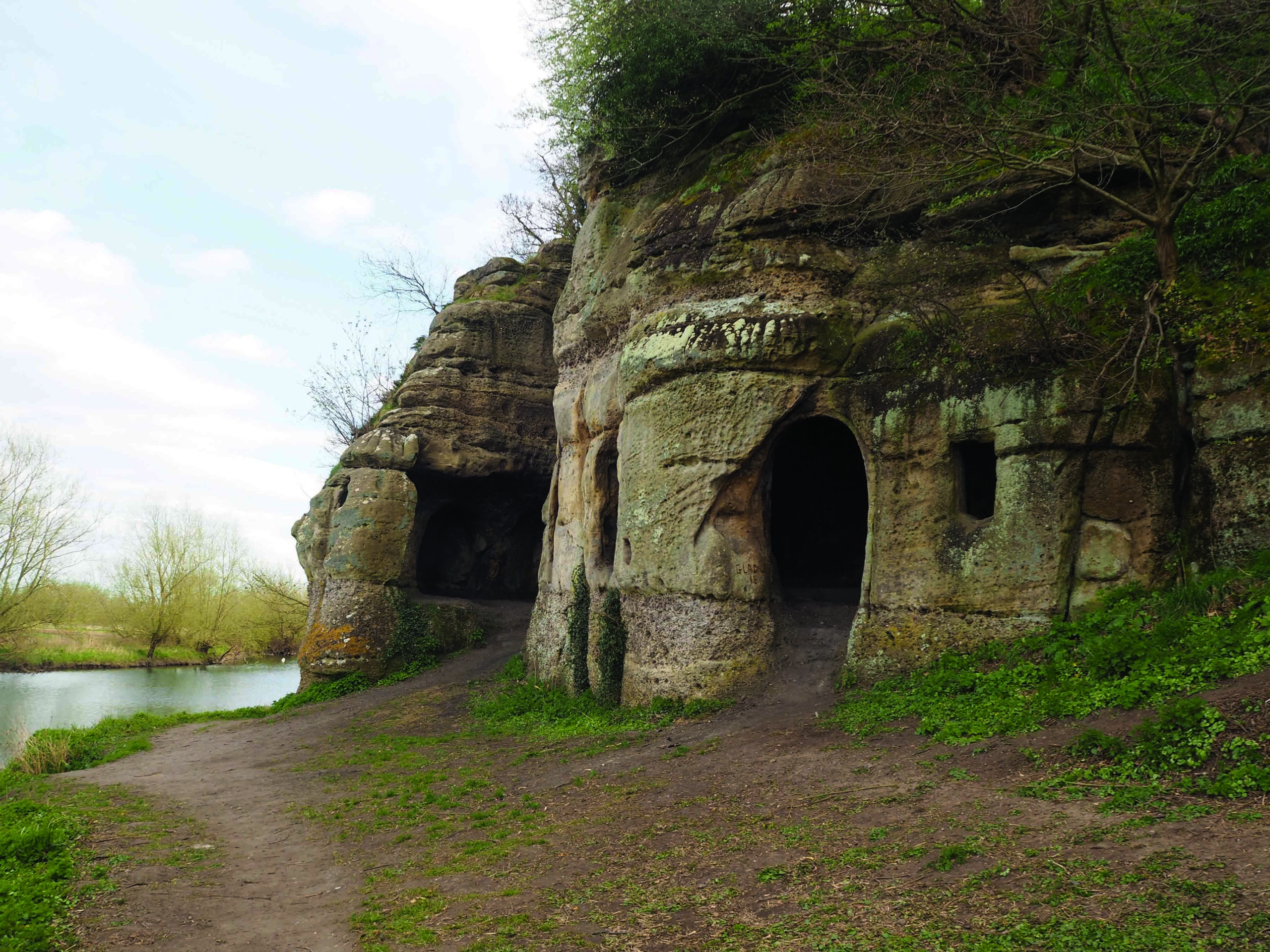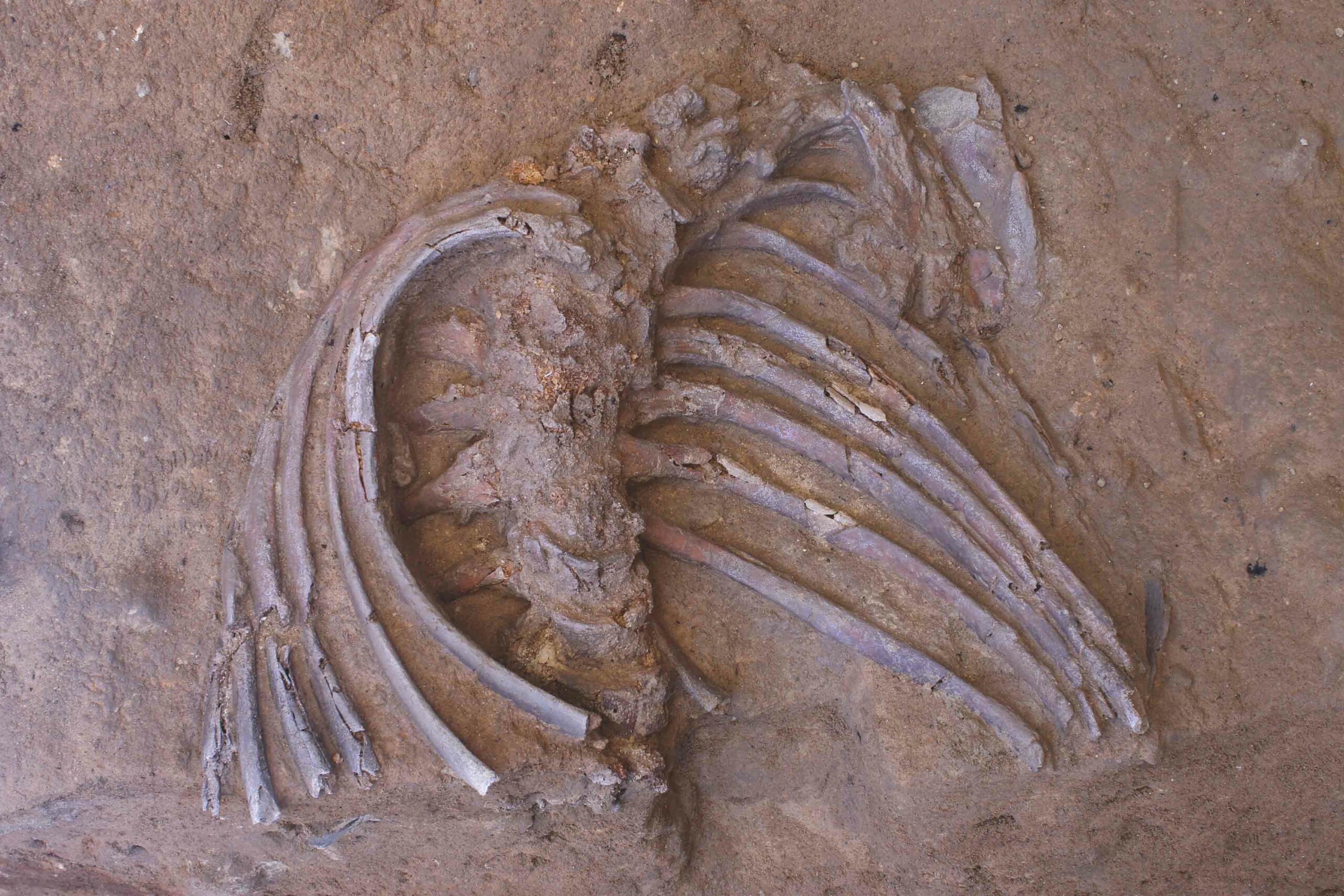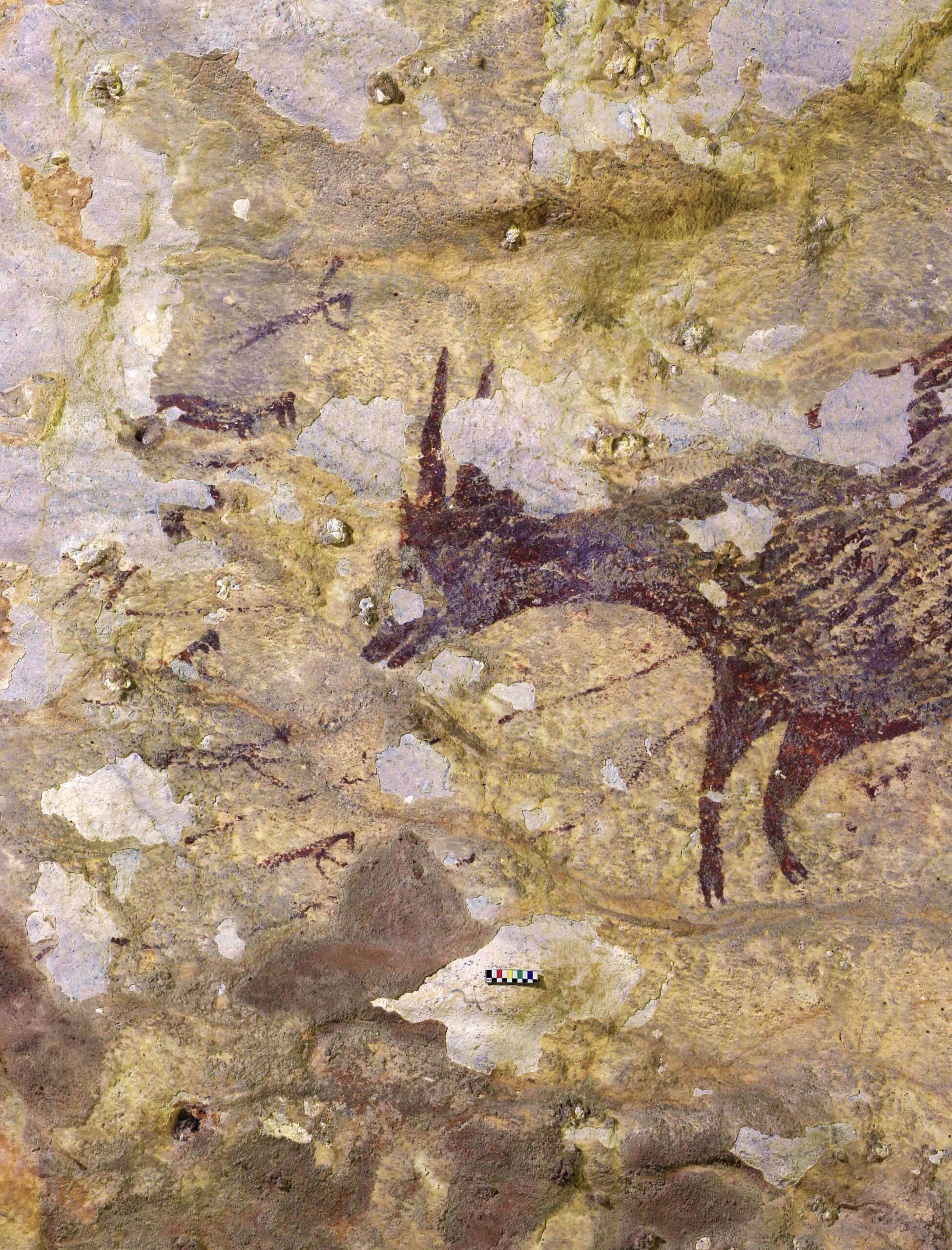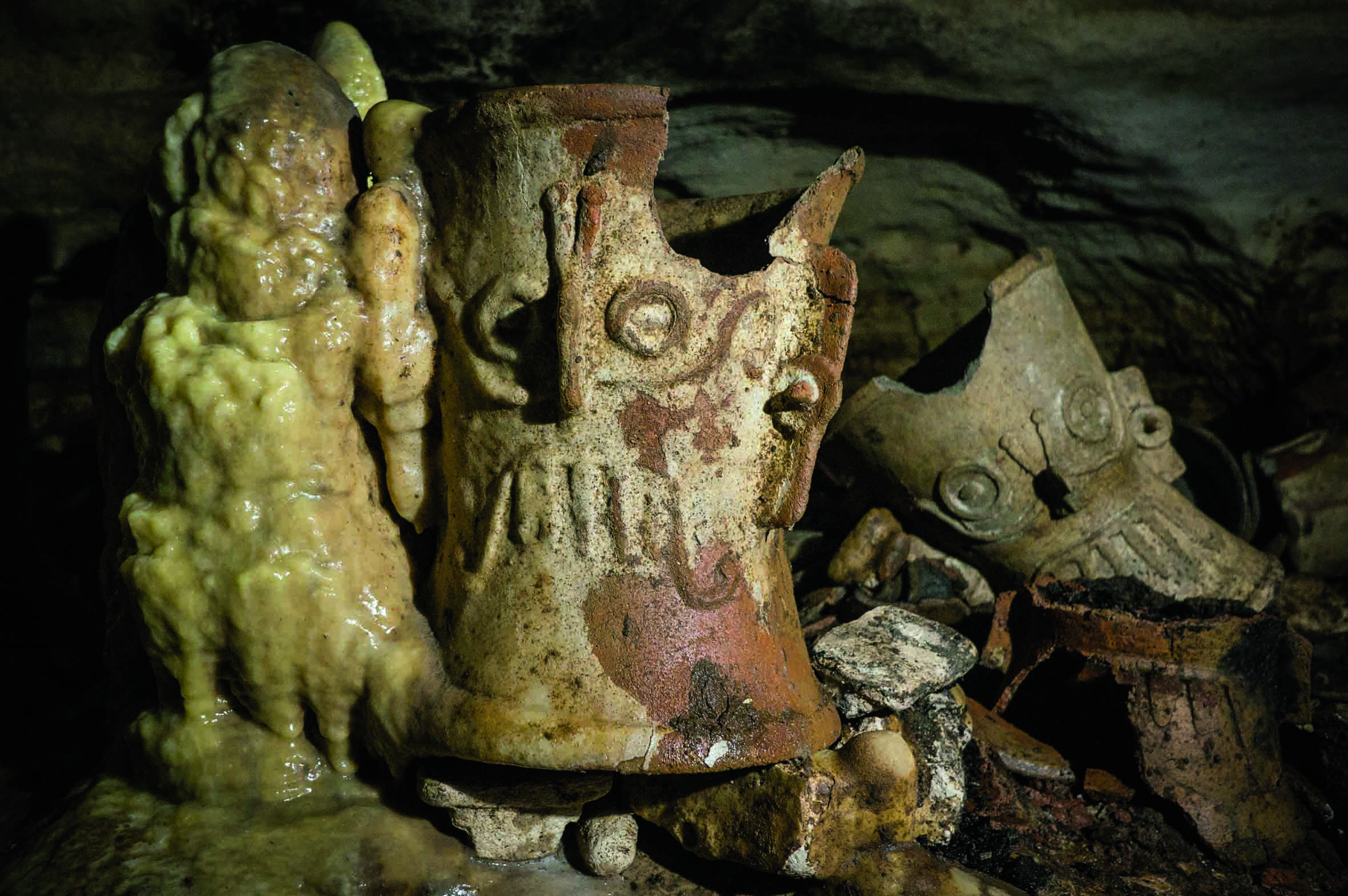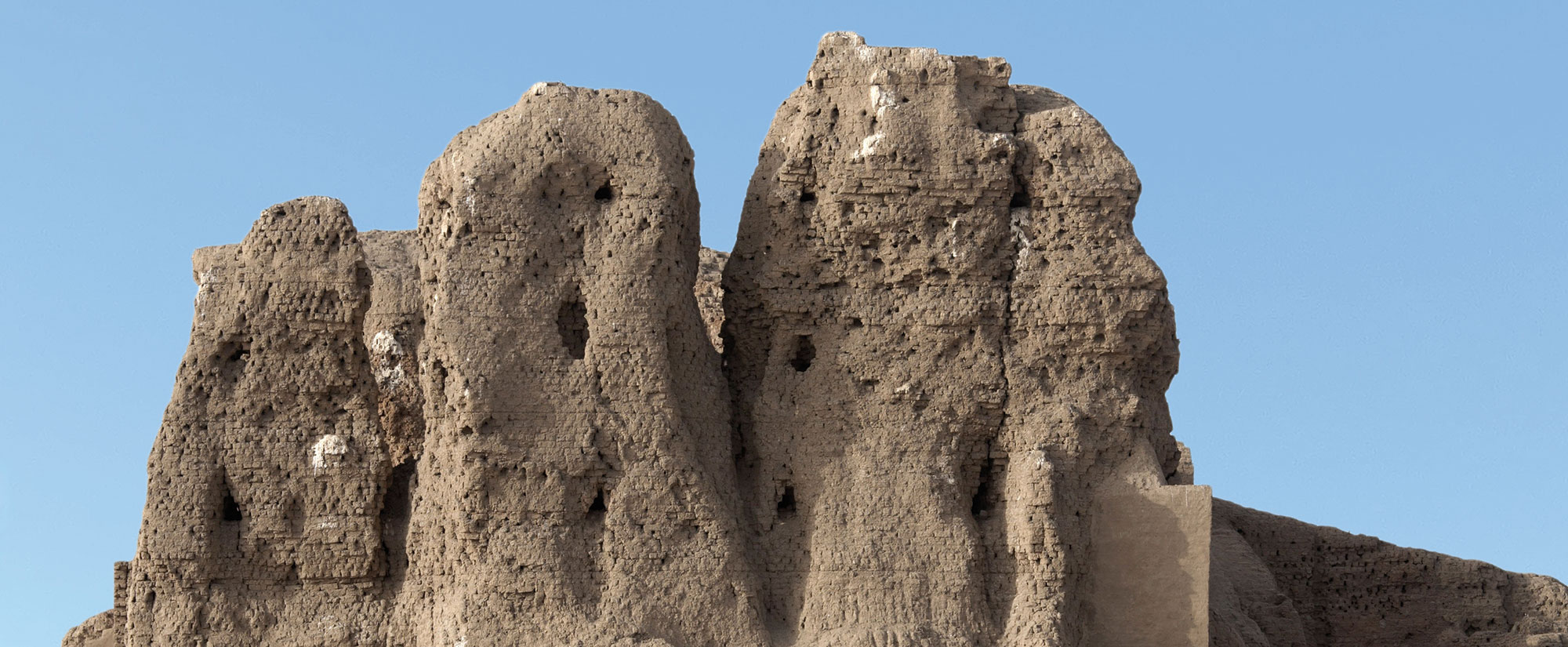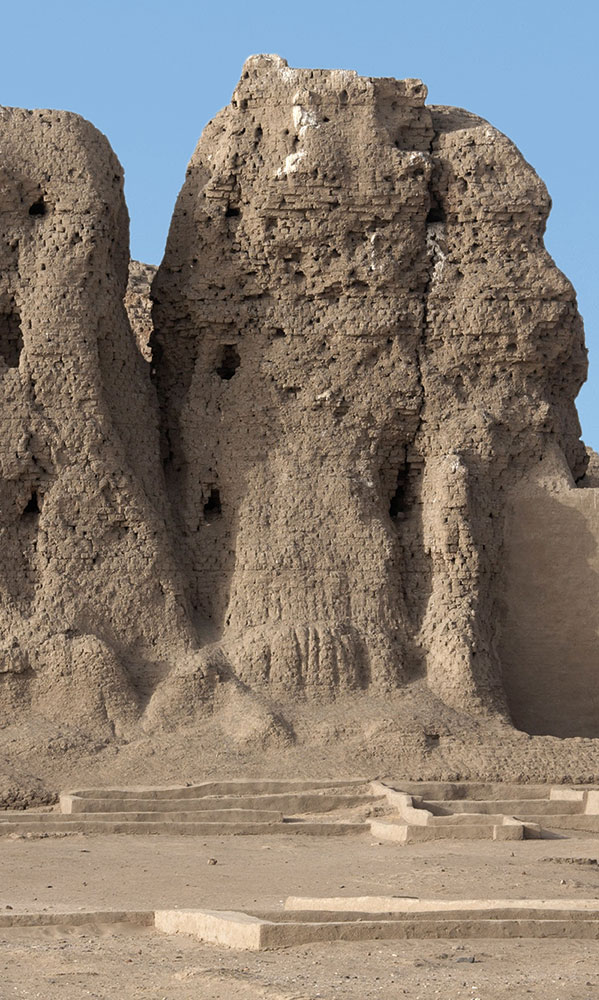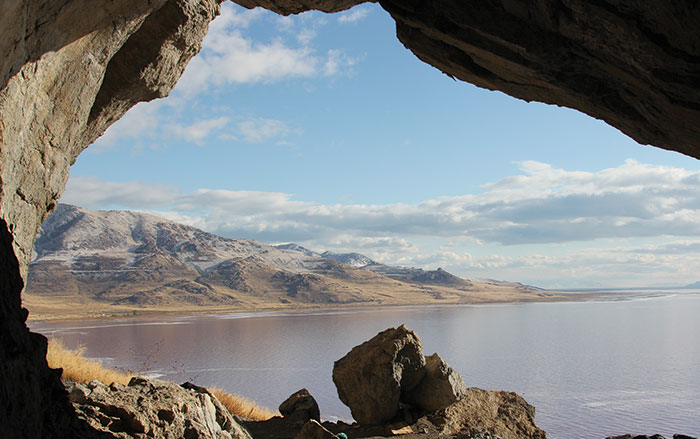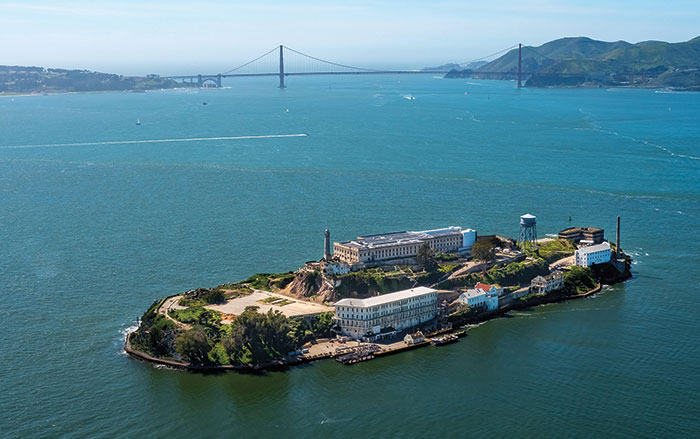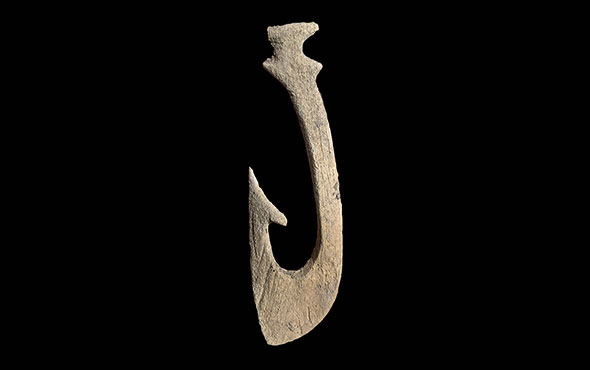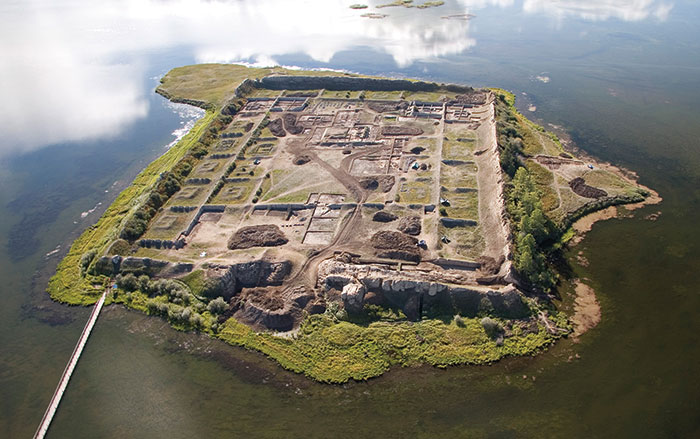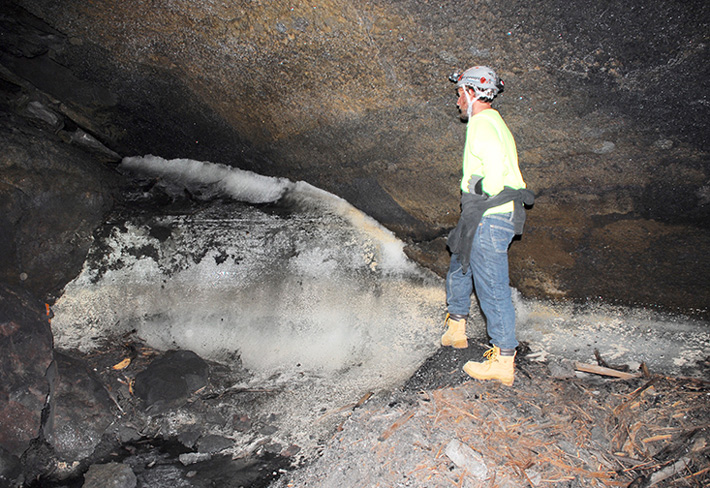
TAMPA, FLORIDA—According to a statement released by the University of South Florida, an international team of researchers led by geoscientist Bogdan Onac suggests that Ancestral Puebloans survived five periods of drought in western New Mexico by melting ice preserved in a cave in what is now the El Malpais National Monument. During years with normal temperatures ice melt would leave shallow pools of water near cave entrances. But during warmer and drier periods, when the shallow pools of water failed to appear, the scientists think Ancestral Puebloans traveled into one particular cave to collect ice from an ancient ice block. They found deposits of ash, charcoal, and pottery in the cave, and charcoal and soot in the surviving ice core. Radiocarbon dating of the charcoal indicates that the small fires were built between A.D. 150 and 950. Onac said the cave ice is now melting and threatening to destroy the archaeological evidence. To read about Ancestral Pueblo use of macaw feathers, go to "Angry Birds."


